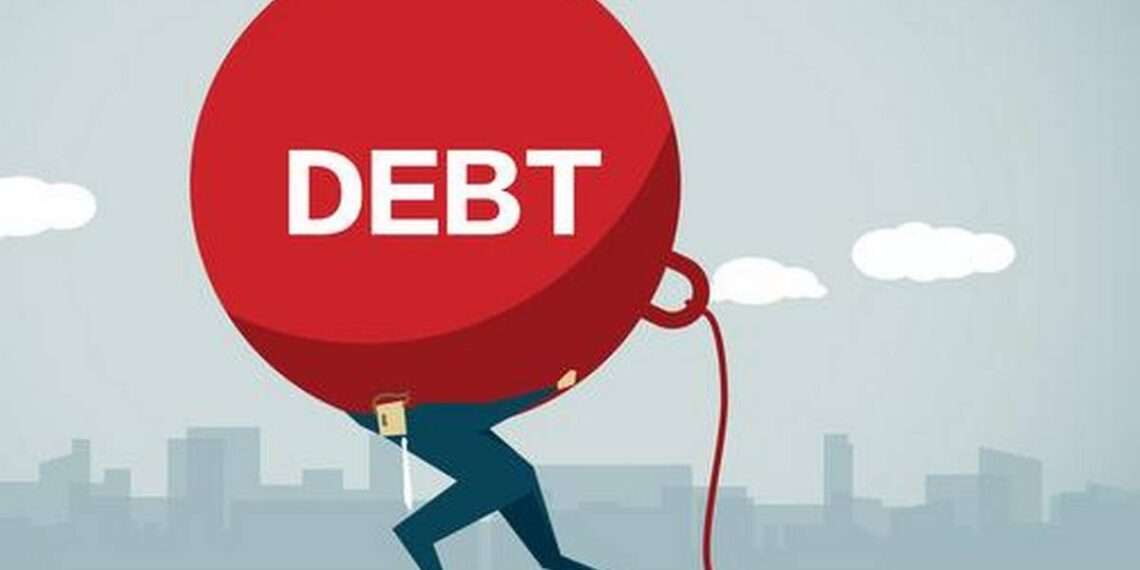The International Monetary Fund (IMF) and the World Bank have continued to classify Ghana as a country in debt distress.
Ghana’s economy has been a subject of intense scrutiny, particularly its debt situation despite completing a domestic debt exchange program (DDE) and showing signs of economic growth. This development, highlighted in the latest Joint Debt Sustainability Analysis report by the IMF, underlines the difficulties of Ghana’s financial situation and the challenges that lie ahead.
The IMF and World Bank’s report indicates that, despite the completion of domestic debt restructuring, Ghana’s Present Value (PV) of the total Public and Publicly Guaranteed (PPG) debt-to-GDP ratio exceeds the 55% benchmark until 2034. This breach is a critical indicator of the country’s ongoing financial instability. The analysis, however, acknowledges progress made by the Ghanaian government in managing domestic debt and advancing comprehensive debt restructuring strategies.
Significantly, the report highlights Ghana’s progress in negotiations with the Official Creditor Committee (OCC) under the G20 Common Framework. Yet, this progress has not sufficed to change the overall debt distress classification. The IMF and World Bank emphasize that Ghana’s failure to complete external commercial debt restructuring in line with the IMF-supported program parameters is a key reason for its continued debt distress status.
Government’s Perspective on the Debt Analysis
The Ghanaian government has a different take on the latest debt sustainability analysis. Officials argue that the IMF and World Bank did not fully account for progress made with bilateral creditors and Eurobond debt holders. They believe that once the final economic data is considered, as opposed to provisional figures, the debt situation will appear more favorable.
The government remains optimistic that future assessments will reflect improvements in the debt situation, particularly as efforts to engage with external creditors and finalize restructuring deals continue. The Ministry of Finance reported that by December 2022, Ghana’s total external debt stood at $20 billion, with bilateral external debt at $5.4 billion and Eurobond holdings at $13.1 billion. These figures illustrate the substantial financial obligations Ghana faces on the international stage.
The IMF and World Bank stress that the baseline projections under the Debt Sustainability Analysis hinge on the successful implementation of the IMF-supported program. Delays in necessary adjustments, reforms, and obtaining external debt relief could further weaken Ghana’s macro-financial stability. Consequently, the international financial institutions advise the Ghanaian government to expedite public debt restructuring and adhere to the reform agenda.
The IMF report is cautiously optimistic, suggesting that Ghana’s debt could be assessed as sustainable on a forward-looking basis, provided that negotiations with private creditors align with program parameters. The report’s baseline assumes robust program ownership and a full commitment to implementing the reforms needed to restore debt sustainability. By 2028, the aim is to reduce the PV of total debt-to-GDP to 55% and the external debt service-to-revenue ratio to 18%.
Despite the challenges, the IMF commends the Ghanaian government for its steadfast implementation of sound macroeconomic policies. The report posits that if Ghana maintains adherence to the program’s conditions, economic recovery is attainable before the program concludes.
Key measures include revenue-based fiscal consolidation, enhanced spending efficiency, and stronger social safety nets. Structural reforms aimed at greater exchange rate flexibility, economic diversification, and stronger growth are also pivotal.
Ghana’s debt distress situation is a multifaceted issue requiring continued diligence and strategic action. While domestic debt restructuring has shown promise, the completion of external debt restructuring and steadfast adherence to the IMF-supported program are essential for achieving long-term debt sustainability.
The Ghanaian government’s optimistic outlook and commitment to reforms, coupled with the guidance and oversight of the IMF and World Bank, provide a roadmap toward economic stability and growth. However, the journey remains fraught with challenges that require concerted efforts from all stakeholders involved.
READ ALSO: CalBank PLC Makes Remarkable Turnaround in the First Half of 2024























